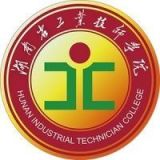What are the biggest challenges and opportunities facing workers in the 21st century?

Challenges:
- Technological disruption: Rapid advancements in automation, artificial intelligence, and cloud computing pose significant threats to jobs in various sectors.
- Globalization: Increased interconnectedness and competition from other countries can lead to lower wages and job losses.
- Demographic changes: An aging population and a growing diversity of skills and experiences require organizations to adapt to attract and retain talent.
- Skills gap: A shortage of skilled workers in critical areas, such as STEM, healthcare, and digital marketing, can hinder productivity and innovation.
- Economic uncertainty: Fluctuations in the global economy can lead to job losses and economic instability.
- Social and ethical issues: Increasing awareness of social justice, diversity, and ethical considerations requires organizations to address issues such as discrimination and bias.
Opportunities:
- Automation and AI: Workers can leverage automation and AI to enhance productivity, improve decision-making, and create new job opportunities.
- Remote work: The rise of remote work allows employees to work from anywhere with an internet connection, reducing commuting time and attracting diverse talent.
- Upskilling and reskilling: Organizations can invest in training and development programs to help workers adapt to changing technologies and industry demands.
- Artificial intelligence: AI can automate routine tasks, freeing up workers to focus on more complex and creative tasks.
- Cybersecurity: The growing threat of cyberattacks requires workers to have strong cybersecurity skills to protect sensitive data and systems.
- Entrepreneurship: The rise of the gig economy and startups offers opportunities for individuals with diverse skills to start their own businesses.
Additional factors to consider:
- Industry-specific challenges: Different industries face unique challenges, such as the need for skilled healthcare professionals or engineers in technology.
- Location-based challenges: Workers may face higher costs of living and transportation, which can impact their purchasing power and job opportunities.
-
Work-life balance: The increasing emphasis on flexible work arrangements can help employees achieve a better work-life balance.



























































































